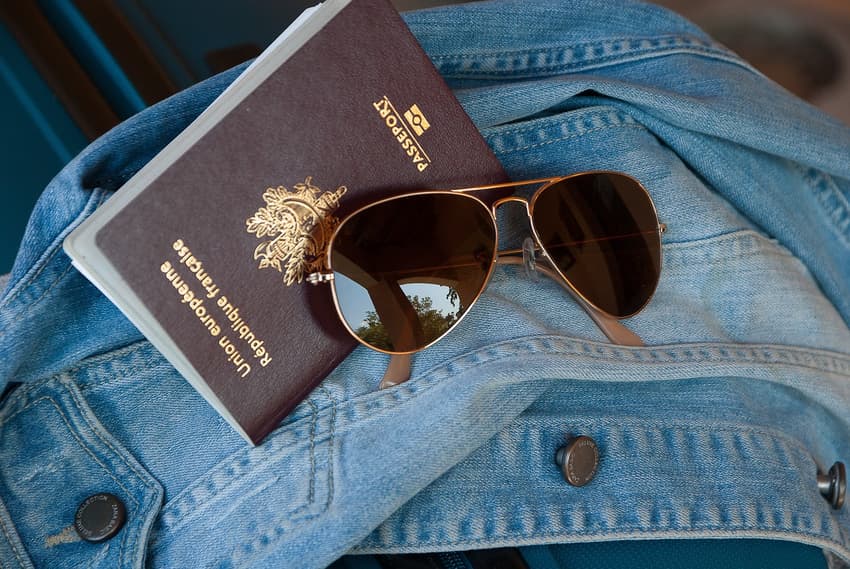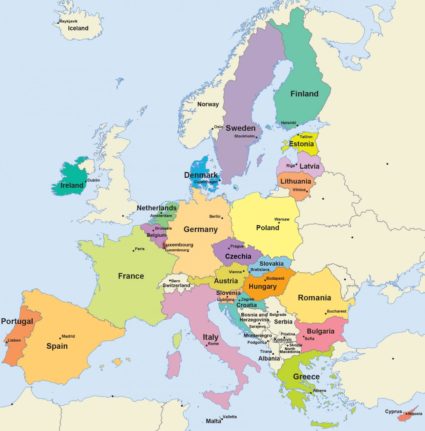Just how freely can EU citizens move to (and within) Switzerland?

Generally speaking, EU and EFTA nationals (the latter consisting of Norway, Iceland, and Liechtenstein), have an almost unlimited access to Swiss work and residency permits. But are there any exceptions?
Though not a member of the European Union, Switzerland signed the so-called Free Movement of Persons treaty (AFMP) with Brussels in 1999.
According to the Swiss government, the agreement, which entered into force in 2002, "lifts restrictions on EU citizens wishing to live or work in Switzerland. The right of free movement is complemented by the mutual recognition of professional qualifications, by the right to buy property, and by the coordination of social insurance systems. The same rules also apply to citizens of EFTA member states."
What does this mean in practice?
It means that citizens of the 27 EU members (see below), plus Norway, Iceland, and Liechtenstein, don’t need a permit if they work in Switzerland for up to three months.

Image: European Union
Beyond this period, you must apply for a residence permit from the Swiss commune in which you are living.
To do so, you must submit the a valid identity card or passport, as well as official confirmation of employment or an employment contract.
Once you do, and receive your B permit, you can work in Switzerland for the duration of the validity of your permit (from one to five years).
Additionally, you will enjoy the rights that citizens of third nations do not have: you are free to change jobs and move from one canton to another.
Another benefit that you, as a citizen of an EU / EFTA state have, is that you can come to Switzerland and look for work for up to six months without any visa requirements.
According to the government, “for the first three months you do not need a permit. After that, you can obtain a short-term EU/EFTA residence permit, which is valid for three months per year, provided you have the necessary financial means to support yourself."
And you have even more rights:
If you have been legally working in Switzerland and contributing to the social insurance scheme, then you are entitled to receive unemployment benefits.
In case you become unemployed while holding a C or B permit, you will receive unemployment benefits, as long as you have been employed in Switzerland for at least 12 months in the last two years and have been living in the country full time during that period.
READ ALSO: Which foreign workers are entitled to unemployment benefits in Switzerland?
Also, in case of a job loss, an EU / EFTA citizen doesn’t have to leave Switzerland immediately.
Instead, they may stay in the country for at least six months to seek new employment.
However, they will have to apply for a permit as a job-seeker with the cantonal migration authorities while looking for a new position.
Another perk is that if you are living in Switzerland as an EU/EFTA citizen, you can purchase property – indeed, you have the same rights in this regard as Swiss citizens do.
You do not need a permit or any additional permissions that a Swiss citizen would not require to buy property.
READ ALSO: Can foreigners buy property in Switzerland?
But that's not all...
While non-Europeans must live 10 years in Switzerland before switching their B permits to permanent-status C permits, this period is five years for the EU / EFTA citizens. (The only exception made for the former group are American and Canadian nationals, who can also apply after five continuous years of residency).
What are some of the limits imposed on EU / EFTA citizens?
Employers in Switzerland must comply with government rules, and specifically with the ‘hiring hierarchy’ that applies to the labour market.
This ‘pecking order’, as it were, gives employment priority for any job vacancy to Swiss citizens. If none can be found, then companies can hire workers from the European Union or EFTA state. (And if none can be hired from that pool, only then employers can recruit from third countries).
Certain restrictions are also in place for Croatian nationals: although the country is a EU member and citizens of that country are part of the AFMP, if the immigration of Croatian workers exceeds a certain threshold, Switzerland can invoke a safeguard clause and limit the number of permits — basically, treat Croatians the same way as third-country workers.
This safeguard clause has been invoked in January 2023.
This is how the State Secretariat for Migration explains it: “The protocol provides for a phased opening of the Swiss labour market to Croatian nationals over a transitional period of ten years. The safeguard clause provided for in the AFMP allows Switzerland to unilaterally reintroduce permit quotas for a limited period of time if immigration from Croatia exceeds a certain threshold."
Comments
See Also
Though not a member of the European Union, Switzerland signed the so-called Free Movement of Persons treaty (AFMP) with Brussels in 1999.
According to the Swiss government, the agreement, which entered into force in 2002, "lifts restrictions on EU citizens wishing to live or work in Switzerland. The right of free movement is complemented by the mutual recognition of professional qualifications, by the right to buy property, and by the coordination of social insurance systems. The same rules also apply to citizens of EFTA member states."
What does this mean in practice?
It means that citizens of the 27 EU members (see below), plus Norway, Iceland, and Liechtenstein, don’t need a permit if they work in Switzerland for up to three months.

Beyond this period, you must apply for a residence permit from the Swiss commune in which you are living.
To do so, you must submit the a valid identity card or passport, as well as official confirmation of employment or an employment contract.
Once you do, and receive your B permit, you can work in Switzerland for the duration of the validity of your permit (from one to five years).
Additionally, you will enjoy the rights that citizens of third nations do not have: you are free to change jobs and move from one canton to another.
Another benefit that you, as a citizen of an EU / EFTA state have, is that you can come to Switzerland and look for work for up to six months without any visa requirements.
According to the government, “for the first three months you do not need a permit. After that, you can obtain a short-term EU/EFTA residence permit, which is valid for three months per year, provided you have the necessary financial means to support yourself."
And you have even more rights:
If you have been legally working in Switzerland and contributing to the social insurance scheme, then you are entitled to receive unemployment benefits.
In case you become unemployed while holding a C or B permit, you will receive unemployment benefits, as long as you have been employed in Switzerland for at least 12 months in the last two years and have been living in the country full time during that period.
READ ALSO: Which foreign workers are entitled to unemployment benefits in Switzerland?
Also, in case of a job loss, an EU / EFTA citizen doesn’t have to leave Switzerland immediately.
Instead, they may stay in the country for at least six months to seek new employment.
However, they will have to apply for a permit as a job-seeker with the cantonal migration authorities while looking for a new position.
Another perk is that if you are living in Switzerland as an EU/EFTA citizen, you can purchase property – indeed, you have the same rights in this regard as Swiss citizens do.
You do not need a permit or any additional permissions that a Swiss citizen would not require to buy property.
READ ALSO: Can foreigners buy property in Switzerland?
But that's not all...
While non-Europeans must live 10 years in Switzerland before switching their B permits to permanent-status C permits, this period is five years for the EU / EFTA citizens. (The only exception made for the former group are American and Canadian nationals, who can also apply after five continuous years of residency).
What are some of the limits imposed on EU / EFTA citizens?
Employers in Switzerland must comply with government rules, and specifically with the ‘hiring hierarchy’ that applies to the labour market.
This ‘pecking order’, as it were, gives employment priority for any job vacancy to Swiss citizens. If none can be found, then companies can hire workers from the European Union or EFTA state. (And if none can be hired from that pool, only then employers can recruit from third countries).
Certain restrictions are also in place for Croatian nationals: although the country is a EU member and citizens of that country are part of the AFMP, if the immigration of Croatian workers exceeds a certain threshold, Switzerland can invoke a safeguard clause and limit the number of permits — basically, treat Croatians the same way as third-country workers.
This safeguard clause has been invoked in January 2023.
This is how the State Secretariat for Migration explains it: “The protocol provides for a phased opening of the Swiss labour market to Croatian nationals over a transitional period of ten years. The safeguard clause provided for in the AFMP allows Switzerland to unilaterally reintroduce permit quotas for a limited period of time if immigration from Croatia exceeds a certain threshold."
Join the conversation in our comments section below. Share your own views and experience and if you have a question or suggestion for our journalists then email us at [email protected].
Please keep comments civil, constructive and on topic – and make sure to read our terms of use before getting involved.
Please log in here to leave a comment.